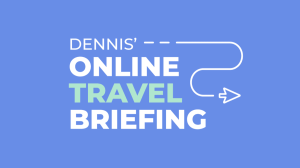Booking’s Connected Trip Vs. Hopper’s Fintech Strategies
Skift Take

Dennis' Online Travel Briefing
Editor’s Note: Every Wednesday, Executive Editor and online travel rockstar Dennis Schaal will bring readers exclusive reporting and insight into the business of online travel and digital booking, and how this sector has an impact across the travel industry.Booking Holdings, long established as the largest online travel company, and Hopper, the up-and-comer, both want travelers to enjoy peaceful, problem-free trips. But while Booking wants travelers to rest assured throughout the journey that it would come to the rescue, Hopper doesn't mind if travelers fret a bit before departure about all the ways that things might go wrong.
Consider that Booking Holdings sold 11 million flight tickets in more than 40 countries during the first six months of 2022, up from 4 million in the first half of 2019, according to Chief Financial Officer David Goulden. Some 5 percent of those flight bookers are new customers, and many are also booking hotels and homes.
It's all part of Booking Holdings labor-intensive and multiyear "connected trip" strategy to make travel more seamless, and t

